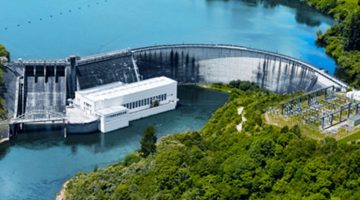Reverend Haki Wirihana, from Ngāti Hauā in the Waikato, briefly explains why water is significant to his iwi.
Transcript
REVEREND HAKI WIRIHANA
Water for my iwi – people – is very, very important, because water is life in its all entirety. We are born from water and and we all have a responsibility to look after our water, in our rivers, in the artesian bores that we bore for water in, from Papatūānuku and also what we get from the heavens. Water, yes, it’s a taonga. And also we need water for our plant life, for our māras [gardens] so that our food can grow. Healthy water is our sustenance.
A lot of our people take people down when they’re sick. They take them down and they baptise them, and they use the water as a spiritual healing for the sick body. The other part of the spirituality is looking after the water itself.
To keep the mauri in the water, we must keep it clean. Also letting our farmers and all those around the rivers and that, and using the water to understand about how they must keep the water clean and not let the effluent and everything go into the rivers. Hoki mai te mauri i te awa. Hoki mai te mauri i te awa. Haere mai te wairua o te orangatanga e tāngata.
Acknowledgements
Reverend Haki Wirihana
Ngāti Hauā Iwi Trust
Ngāti Hauā Mahi Trust
AS Wilcox and Sons Limited
Sandra and Rod McKinnon
Footage of Te Wairere Falls, Bortocal. Released under Creative Commons licence CC BY 3.0
Drone footage of Karapiro Dam, Bruce Casey
Footage of karakia near tī kōuka (cabbage) tree, Ākina Foundation
Drone footage of McKinnon’s farm and shots of effluent spreader, filmed by AF Productions and Paul Sutherland Photography. Copyright Yardmaster
Footage of Ngatamariki Power Station, Chris Sisarich
Acknowledgement
This video has been developed in partnership with the Waikato Regional Council as part of the Rivers and Us resource.


